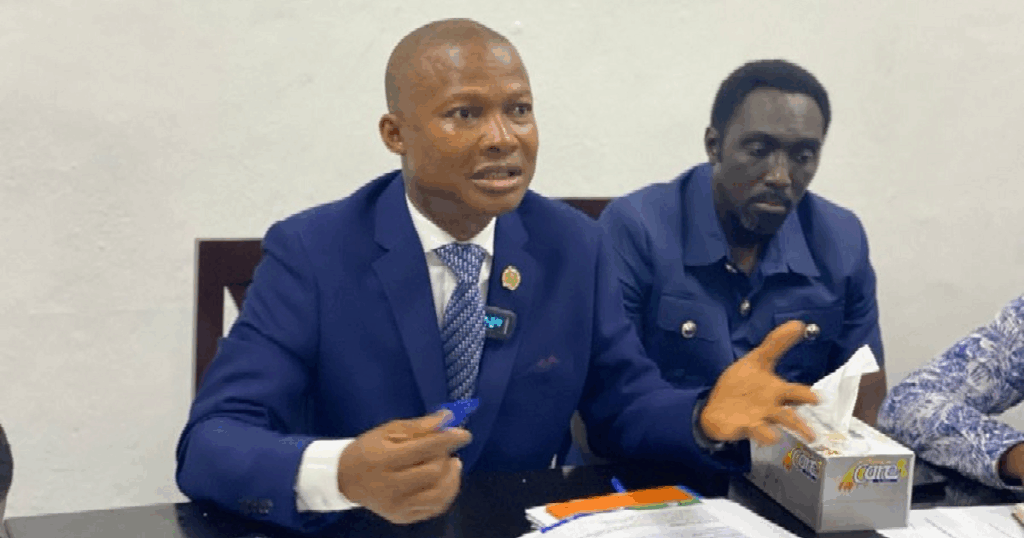By Marcus Bangura
The Native Consortium and Research Centre has launched a blistering attack on the National Petroleum Regulatory Authority (NPRA), accusing it of manipulation, deception, and shameless opportunism in the ongoing fuel pricing crisis. In a widely circulated statement titled “No Credit for Fuel Manipulation”, the Consortium alleges that the PRA is attempting to claim credit for a Le3 reduction in fuel prices, a move it describes as a desperate face-saving act, not rooted in genuine regulatory reform.

“For months,” the statement reads, “the NPRA has manipulated the pricing template to cushion oil marketing companies and government interests, leaving consumers to suffer under unjustified hikes. If they want to take credit now, let them first adjust the formula to reflect actual market realities, somewhere around Le23 per litre.”
The fuel price in Sierra Leone was recently reduced from Le30 to Le27 per litre, but the Consortium argues that this reduction was not the result of PRA’s intervention, but a forced ‘people’s revolution’ after public pressure exposed attempts to fix prices at Le27. It labelled PRA’s public reaction as “headless and shameless”, accusing the agency of working behind the scenes to preserve inflated fuel rates under the guise of aligning with global trends.
At the heart of the matter is the NPRA’s controversial and opaque pricing model, which critics say fails to reflect real-time global oil dynamics. The Native Consortium, which has been a leading voice on petroleum sector governance for over a decade, contends that the agency and government have engaged in a quiet conspiracy to maintain artificially high fuel prices, while regional neighbours like Liberia and Guinea have passed on sharper cuts to their citizens in light of falling international oil prices and stable freight charges.
The Consortium’s outrage is also backed by economic data. As of July 14, 2025, the global average price of gasoline (Octane-95) stands at $1.29 USD per litre, according to GlobalPetrolPrices.com. At Sierra Leone’s official exchange rate of Le22.6 per $1 USD, confirmed to C4D Media by a senior Bank of Sierra Leone official, this global average translates to approximately Le29.15 per litre.
Meanwhile, Sierra Leone’s pump price of Le25 per litre converts to about $1.11 USD, which on the surface appears below the global average. But deeper analysis reveals a troubling gap: the market-equivalent value of fuel in Sierra Leone, taking into account international trends and local supply conditions, is estimated at Le19.53 per litre. This means consumers are paying far more than they should, exposing serious flaws in the NPRA’s pricing formula and further discrediting its claim to regulatory competence.

Public confidence in the NPRA continues to erode amid accusations of collusion with oil marketers and political actors to protect revenue streams over consumer welfare. The agency has yet to release a transparent breakdown of how its pricing decisions are calculated, fuelling suspicion and frustration.
Civil society groups are now demanding a full audit of the fuel pricing framework and calling for the establishment of an independent and accountable mechanism to determine pump prices. The Native Consortium insists that only a pricing model rooted in transparency, market logic, and consumer protection can restore public trust.
The Citizens Forum for Democratic Accountability (C4D), a vibrant civil society organization committed to democratic governance and effective service delivery, with a niche in promoting accountability and ensuring socio-economic services are accessible and affordable, has long criticized exorbitant fuel pricing in Sierra Leone, often highlighting that the country’s pump price remains the highest in the sub-region despite favourable global and regional market conditions.
C4D maintains that fuel, being a critical driver of transport, food, electricity, and livelihoods, must be priced transparently and equitably, alluding that the continued overpricing of fuel in Sierra Leone, despite declining global crude prices and stable freight costs, disproportionately impacts the poor and undermines democratic accountability. “When fuel is overpriced, the ripple effect is felt in every home, market, school, and hospital,” C4D warns, stressing that public agencies like the PRA must prioritize citizen welfare over profit motives and correct the pricing formula to reflect justice, fairness, and economic rights in service delivery.
As Sierra Leone faces a deepening cost-of-living crisis, the ongoing fuel pricing debacle highlights wider governance failures. For many, fuel prices are more than just numbers at the pump, they are a barometer of fairness, economic justice, and whether institutions serve the people or powerful interests. The Native Consortium’s fiery outburst is not just about fuel, it is a broader demand for accountability in the heart of Sierra Leone’s economic regulation.


